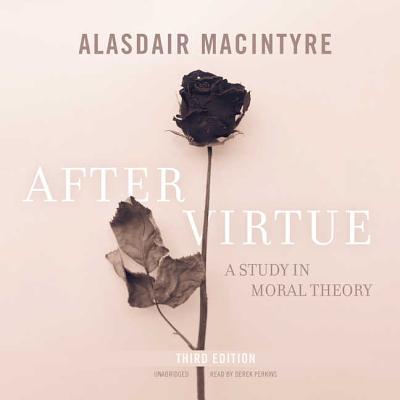

MacIntyre doesn’t only tell us what he thinks is the problem and the answer in After Virtue, but he also critiques other positions by philosophers in the past.

We see that so frequently today when morally charged words are used to justify the most horrific things, words that are used in a completely opposite way from what they have been historically understood to mean. “culture of emotivism” in which moral language is used pragmatically to manipulate attitudes, choices, and decisions, so that contemporary moral culture is a theater of illusions in which objective moral rhetoric masks arbitrary choices. In After Virtue, MacIntyre states that the problem in society is that it is a About After VirtueĪfter Virtue is his best known book on this topic and it began a dialogue that continued for the next 40 years on ethics, morality, and society. That we believe anything is “wrong” is evidence that we know that there is an “ought” to which the wrong doesn’t measure up. Whatever our belief system is, in order for it to be true and vald, it has to explain both the world as it is and how is ought to be. He was a Marxist as a young man, but abandoned that philosophy after realizing there was no moral grounding within the Marxist framework for condemning the outrages committed by Marxists states. He’s taught at Oxford, Boston University, Vanderbilt University, Duke University, and the University of Notre Dame before retiring in 2010. MacIntyre was born in Scotland in 1929 and immigrated to the U.S. What MacIntyre does in After Virtue is reason through the different positions on these questions, points out the flaws and weaknesses in some and providing his view of reconciling these positions. What is “good” and what is my obligation and “right” to that good … these are not new questions.

Virtue, politics, our interactions with each other and our rights to ourselves, these are questions that have been discussed since humanity expanded beyond two people.


 0 kommentar(er)
0 kommentar(er)
